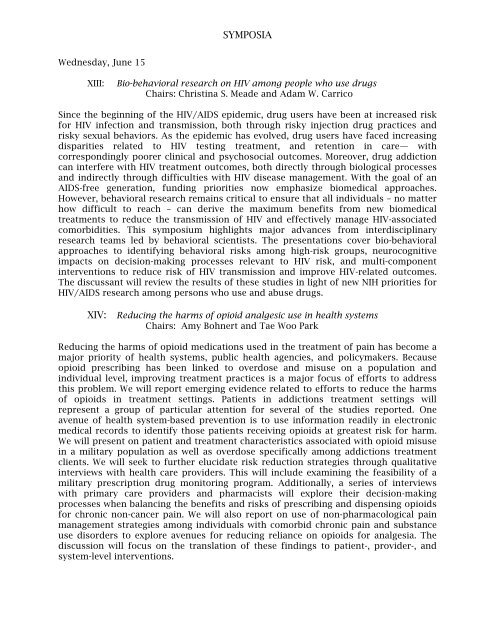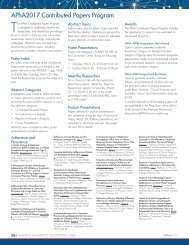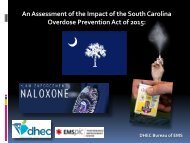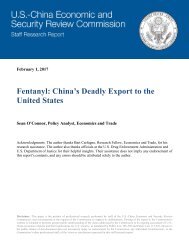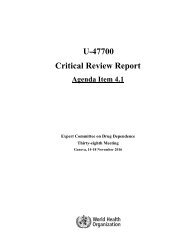CPDD 78th Annual Scientific Meeting Program
2016-78th-CPDD-Program-Book-6-07-16FINAL
2016-78th-CPDD-Program-Book-6-07-16FINAL
You also want an ePaper? Increase the reach of your titles
YUMPU automatically turns print PDFs into web optimized ePapers that Google loves.
SYMPOSIA<br />
Wednesday, June 15<br />
XIII:<br />
Bio-behavioral research on HIV among people who use drugs<br />
Chairs: Christina S. Meade and Adam W. Carrico<br />
Since the beginning of the HIV/AIDS epidemic, drug users have been at increased risk<br />
for HIV infection and transmission, both through risky injection drug practices and<br />
risky sexual behaviors. As the epidemic has evolved, drug users have faced increasing<br />
disparities related to HIV testing treatment, and retention in care— with<br />
correspondingly poorer clinical and psychosocial outcomes. Moreover, drug addiction<br />
can interfere with HIV treatment outcomes, both directly through biological processes<br />
and indirectly through difficulties with HIV disease management. With the goal of an<br />
AIDS-free generation, funding priorities now emphasize biomedical approaches.<br />
However, behavioral research remains critical to ensure that all individuals – no matter<br />
how difficult to reach – can derive the maximum benefits from new biomedical<br />
treatments to reduce the transmission of HIV and effectively manage HIV-associated<br />
comorbidities. This symposium highlights major advances from interdisciplinary<br />
research teams led by behavioral scientists. The presentations cover bio-behavioral<br />
approaches to identifying behavioral risks among high-risk groups, neurocognitive<br />
impacts on decision-making processes relevant to HIV risk, and multi-component<br />
interventions to reduce risk of HIV transmission and improve HIV-related outcomes.<br />
The discussant will review the results of these studies in light of new NIH priorities for<br />
HIV/AIDS research among persons who use and abuse drugs.<br />
XIV:<br />
Reducing the harms of opioid analgesic use in health systems<br />
Chairs: Amy Bohnert and Tae Woo Park<br />
Reducing the harms of opioid medications used in the treatment of pain has become a<br />
major priority of health systems, public health agencies, and policymakers. Because<br />
opioid prescribing has been linked to overdose and misuse on a population and<br />
individual level, improving treatment practices is a major focus of efforts to address<br />
this problem. We will report emerging evidence related to efforts to reduce the harms<br />
of opioids in treatment settings. Patients in addictions treatment settings will<br />
represent a group of particular attention for several of the studies reported. One<br />
avenue of health system-based prevention is to use information readily in electronic<br />
medical records to identify those patients receiving opioids at greatest risk for harm.<br />
We will present on patient and treatment characteristics associated with opioid misuse<br />
in a military population as well as overdose specifically among addictions treatment<br />
clients. We will seek to further elucidate risk reduction strategies through qualitative<br />
interviews with health care providers. This will include examining the feasibility of a<br />
military prescription drug monitoring program. Additionally, a series of interviews<br />
with primary care providers and pharmacists will explore their decision-making<br />
processes when balancing the benefits and risks of prescribing and dispensing opioids<br />
for chronic non-cancer pain. We will also report on use of non-pharmacological pain<br />
management strategies among individuals with comorbid chronic pain and substance<br />
use disorders to explore avenues for reducing reliance on opioids for analgesia. The<br />
discussion will focus on the translation of these findings to patient-, provider-, and<br />
system-level interventions.


